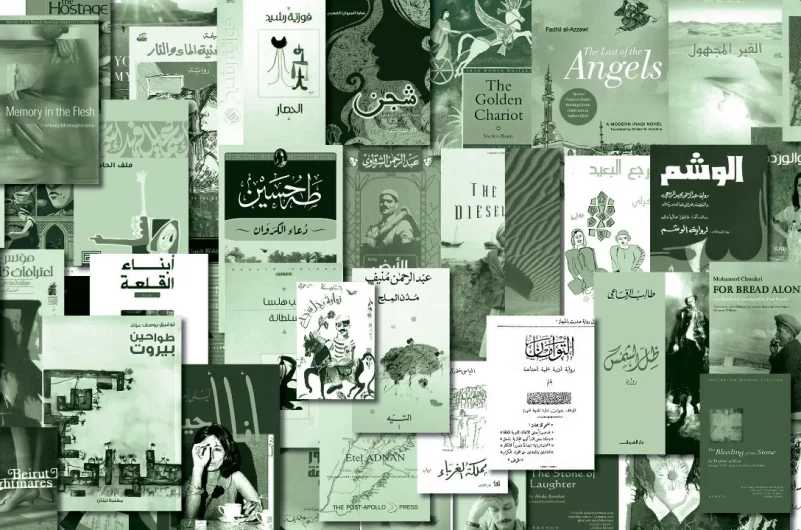Modern Arabic literature has been gaining global recognition, with novels from Egypt, Lebanon, Palestine, Saudi Arabia, Iraq, and the Gulf receiving literary awards and international acclaim. But behind every successful English translation lies a complex journey of cultural interpretation, linguistic negotiation, and creative decision-making. Arabic to English translation and localization demands far more than converting vocabulary—it requires the translator to carry entire worlds across languages.
Arabic novels are rooted in diverse political realities, humor styles, dialects, religious references, and cultural rhythms. English readers experience the story through the translator’s lens, shaped by choices that determine tone, pacing, characterization, and emotional depth. How do you translate a joke that depends on a regional dialect? How do you preserve the rhythm of poetic descriptions? And how do you maintain cultural authenticity while ensuring the text remains accessible to global readers?
This article explores seven major challenges translators face when adapting modern Arabic novels into English. Through these challenges, we see just how much craftsmanship and cultural sensitivity go into every book English audiences enjoy.
- Navigating Dialects and Regional Variations
Modern Arabic fiction frequently blends dialects—from Egyptian and Levantine to Gulf or Iraqi Arabic. Each dialect carries its own humor, rhythm, and cultural identity. English lacks direct equivalents for many dialect-specific expressions, forcing translators to choose between standardizing the dialogue or finding creative substitutions that honor the character’s voice. The challenge lies in capturing personality without alienating readers unfamiliar with Arabic linguistic diversity.
- Preserving Cultural Humor and Wordplay
Arabic humor often relies on puns, rhymes, or idiomatic twists. When translated literally, the joke collapses. Translators must reconstruct humor in English without drifting too far from the author’s intended meaning. Sometimes they insert brief contextual cues; other times they rewrite the joke entirely to match the comedic effect. This balancing act between accuracy and entertainment requires strong creative instincts.
- Handling Untranslatable Cultural References
Modern Arabic novels contain references to regional food, historical events, folklore, and religious customs that English readers may not recognize. Translators decide when to keep original terms, when to describe them briefly, and when to fully adapt them for clarity. Too much explanation can interrupt narrative flow, while too little risks confusion. Achieving the perfect amount of cultural framing is one of the hardest aspects of localization.
- Translating Emotionally Dense Prose
Many Arabic authors favor poetic descriptions, emotional introspection, and metaphor-rich language. English tends to be more direct, making it difficult to carry the same emotional resonance across languages. Translators must decide which metaphors to keep, which to adapt, and how to retain lyrical tone without sounding overwrought. This challenge is especially significant in novels where emotional depth drives the narrative.
- Addressing Political and Social Nuance
Arabic literature often tackles sensitive subjects—identity, war, displacement, social pressures, class dynamics. Translating these themes into English requires caution to avoid misrepresenting context or unintentionally reinforcing stereotypes. Professional translators conduct extensive research, cross-check historical facts, and collaborate with cultural experts to ensure accuracy. Their goal is to present sensitive material truthfully and responsibly for a global audience.
- Deciding When to Annotate and When Not To
Some novels require footnotes to explain dense cultural references. Others flow better without them. Translators must judge when annotations enhance understanding and when they interrupt storytelling. Many opt for subtle in-text clarifications rather than formal notes, especially for fiction meant to feel immersive. This judgment call significantly affects pacing and reader engagement.
- Preserving the Author’s Voice Without Over-Localization
Every author has a distinct style—lyrical, fragmented, humorous, minimalist. Over-localizing the text risks diluting that voice, making the English version feel generic. Excellent translators stay faithful to tone even when adapting difficult structural elements. They preserve character dynamics, dialogue rhythm, and narrative flow while making adjustments that help English readers connect naturally with the story. It’s a delicate act of loyalty and adaptation.
Conclusion
Modern Arabic novels offer powerful narratives that deserve global readership, but bringing them into English requires extraordinary skill. Translators must balance cultural authenticity with readability, carrying emotional weight, humor, political nuance, and stylistic beauty across languages. Each challenge—from navigating dialects to preserving authorial voice—demands not only linguistic expertise but deep cultural sensitivity.
Arabic to English translation and localization is ultimately an art form. When done well, it allows English-speaking readers to enter new worlds, meet unforgettable characters, and experience stories shaped by histories and perspectives they may not encounter otherwise. Translators serve as both interpreters and storytellers, ensuring the final text remains true to its cultural roots.
If you write, translate, or edit multilingual fiction, consider today’s challenges as invitations to dig deeper into context, embrace nuance, and honor the richness of Arabic literature. The more thoughtfully we translate, the more bridges we build between cultures—and the more stories we allow to shine globally.
FAQs
- Why are dialects hard to translate from Arabic to English?
Each dialect has unique expressions and tones thatdon’t have direct English equivalents. - Do translators change jokes in Arabic novels?
Often yes—they recreate humor in ways that convey the same comedic effect. - Why are footnotes sometimes avoided in novels?
Too many notes disrupt narrative rhythm and remove readers from the story. - Is cultural neutrality possible in translation?
Not fully—translation always reflects choices, but skillful translators minimize distortion. - How important is preserving the author’s voice?
It’s essential. A novel’s soul depends on maintaining tone, style, and emotional identity.


